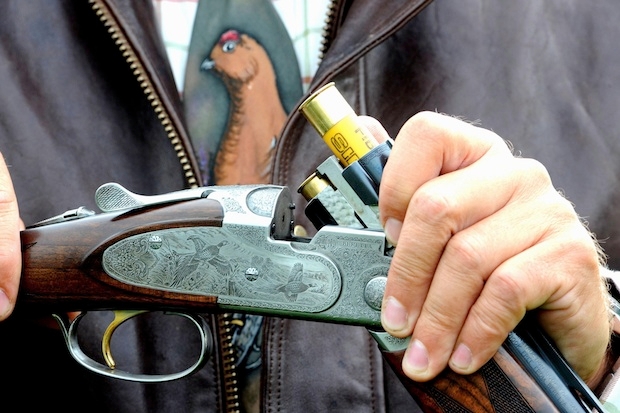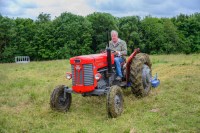When I told our blogs editor about an independent survey claiming that shooting was worth £2 billion to the rural economy, he didn’t believe me. ‘Are you sure it’s not £2 million, Camilla?’ But no. I duly went and checked for him, and £2 billion is indeed the figure. The amount spent on shooting (£2.5bn), is almost ten per cent of the total amount spent annually on outdoor recreation, which has been measured at £27 billion.
The problem with shooting, as with many other rural or field sports, is people’s perception. Fair enough — after all, not many people have their own grouse moor. But, as the report showed — and as most people living in rural areas will know — shooting is about far more than just swanning about in tweed and bagging a few brace.
According to the report, shooting supports 74,000 full-time jobs, and owners of shoots spend £250 million per year on conservation and habitat management, which benefits both game and wildlife.
Even Martin Harper of the RSPB, which is historically opposed to shooting, has said that ‘land over which shooting is carried out does some good things for wildlife: management of woodland for some pheasant shoots can improve species diversity; some farmers, who run shoots, have achieved great things for wildlife supported by agri-environment schemes; many of our Nature of Farming Award finalists manage farms with shoots on them; and of course some birds flourish in the uplands where grouse moor management is prevalent.’
But if shooting does bring so many benefits to both the countryside and the economy, why isn’t this more widely recognised? Shooting remains a controversial topic for many (the current furore over Mark and Spencer’s refusal to stock grouse this season and the campaigns against the supermarket is proof of the pudding), and shooting is inextricably linked with game shooting — which, in the public’s mind, is the pastime of toffee-nosed buffers and City Boys.
Target shooting is, in fact, a popular sporting and leisure activity, and one that Brits are fairly good at. At the Commonwealth Games in Glasgow, England have (at the time of writing) won 15 medals in shooting (5 golds, 2 silver and 8 bronze), while Scotland has three, and Wales one. This success is in spite of public support, not because of it. Geri Buckley, a pistol shooter competing at the games, told me that both she and the majority of the shooting team are completely self-funded. For her, this means fitting in practice sessions around her job on the membership team at the Countryside Alliance.

Team England’s Double Trap shooters celebrate with their Silver, Gold, Gold and Bronze medals. Image: Getty
Indeed, five self-funded target shooters even started an online campaign in order to raise enough money to go to Glasgow. One of these, Matthew French, won silver in his event (in an all-England final – he lost out to fellow England shooter, Steve Scott). UK Sport and similar organisations can’t support every athlete of course, but juggling work and sport means that many British shooters won’t have the time or money to practice as much as they’d like.
Maybe, as long as our shooters keep winning, and wildlife and bird habitats keep improving, the perception of shooting could yet change. But don’t bet on it.
 Join Richard Purdey and The Spectator to celebrate 200 years of Purdey gun and rifle making in the Long Room of Audley House on Thursday 11 September.
Join Richard Purdey and The Spectator to celebrate 200 years of Purdey gun and rifle making in the Long Room of Audley House on Thursday 11 September.
For tickets and more information, click here.







Comments